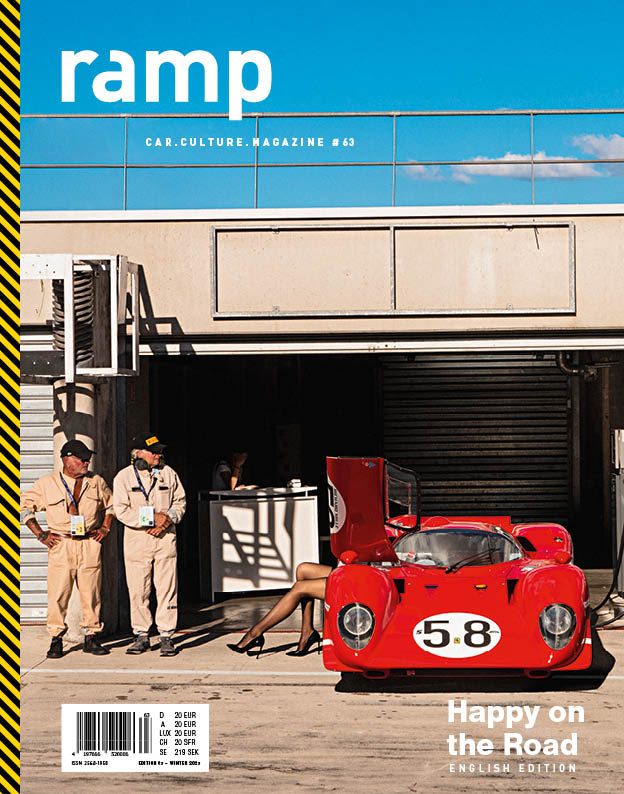A day in Berlin and a few thoughts on happiness as an individual experience. With some musings about English musician Chris Rea and German tourist Erwin Kreuz.
And somehow it all ends with meatballs and cats.
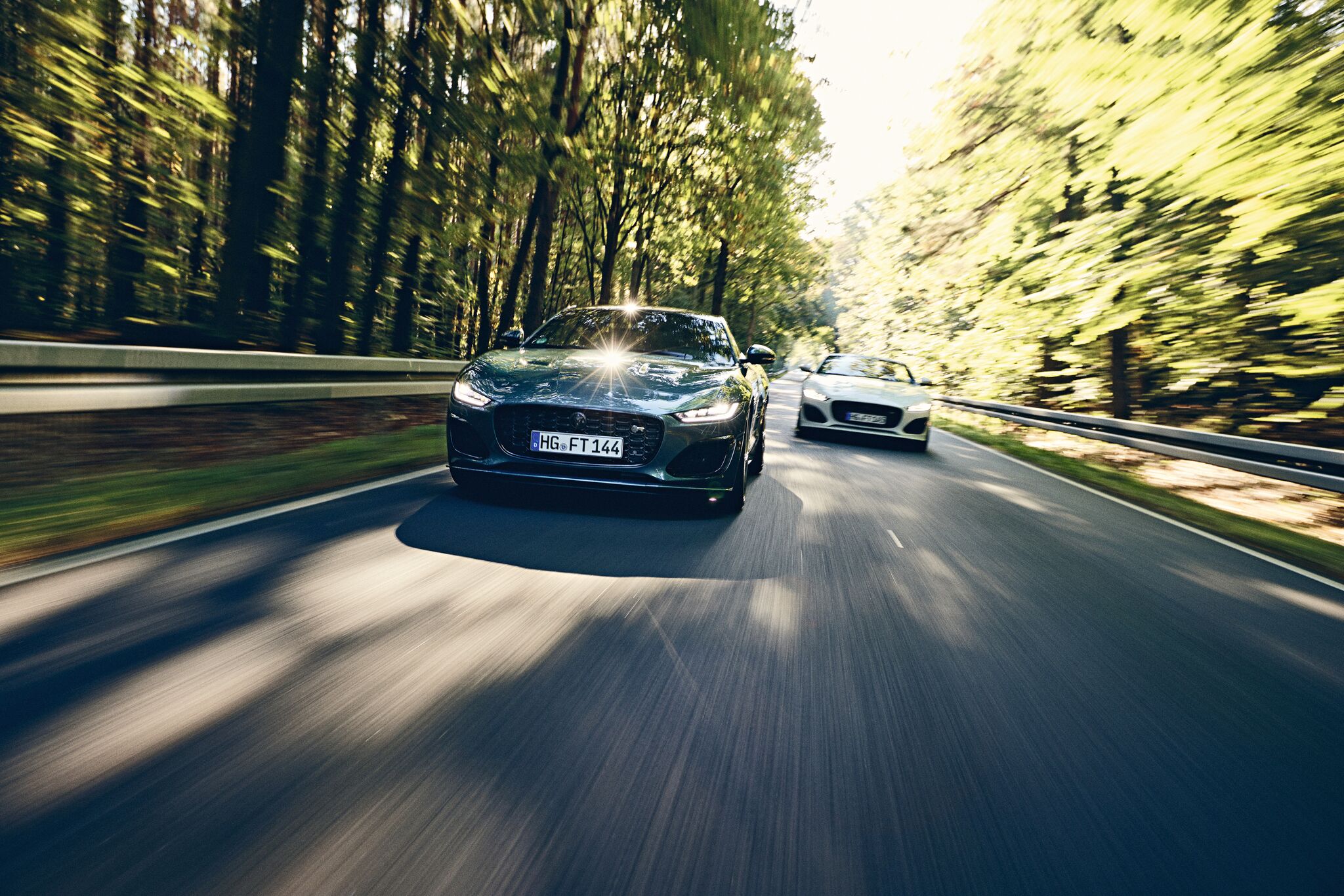
What is happiness and why are people so obsessed with it as if there were no other valuable, desirable things on this planet, such as reason, justice or solidarity? Today we have an entire science of happiness that goes by the name of “positive psychology” and which studies the state of modern man and the foundations of his happiness. Financial institutions invest large sums in the field of positive psychology – because happiness seems to be the most desirable commodity of our time. Human autonomy is praised as the basis of happiness: only an independent, free person can give themselves the colorful bouquet of happiness, full of wishes and desires; from this gift the new self is born, a happy self that is not satisfied with the shallow promise of universal happiness for all, but strives for individual happiness tailored specifically to one’s self.
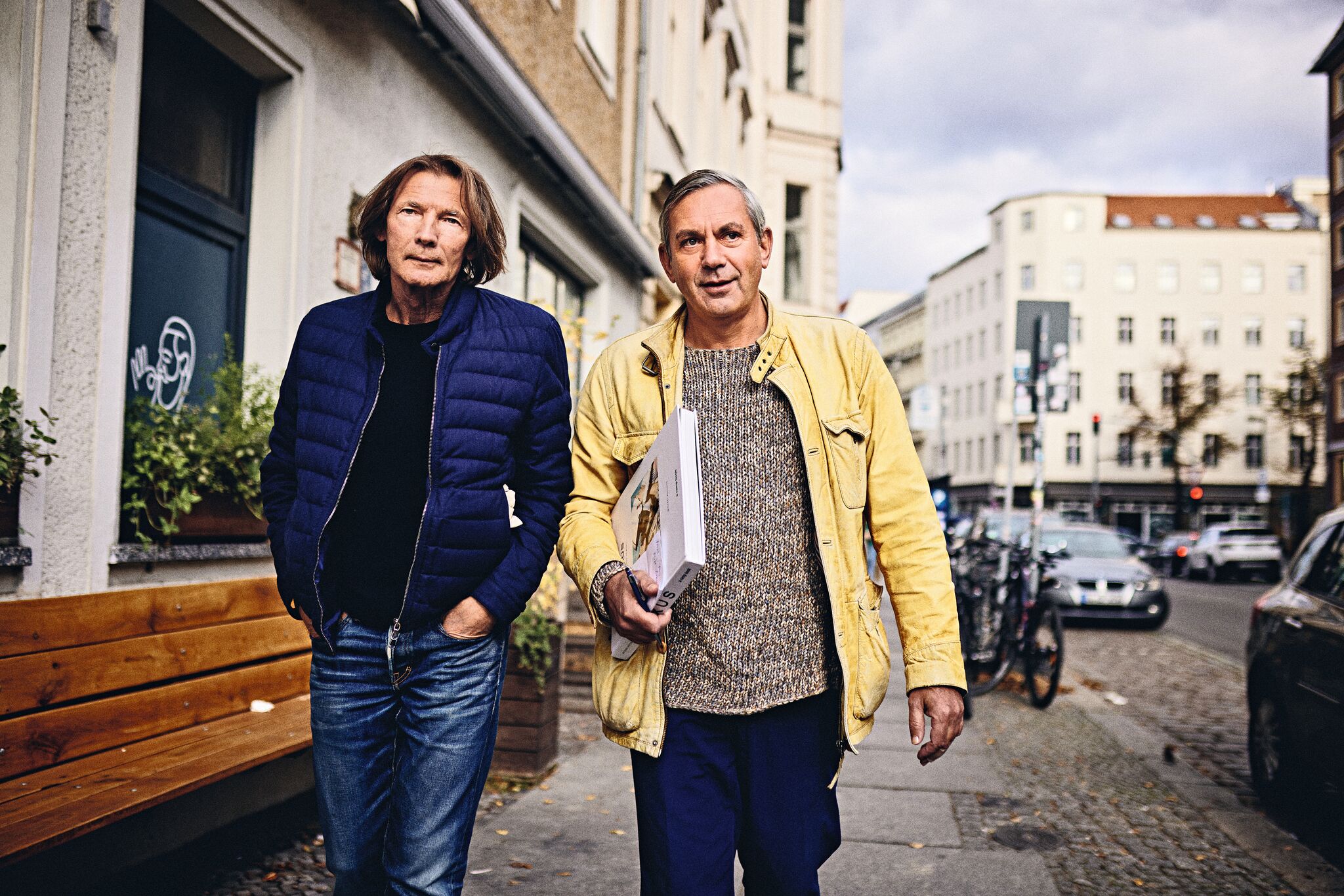
This view of happiness as an individual achievement sounds convincing, but it changes pretty much everything about our social contract: education is transformed into the pursuit of individual skills, health becomes a combination of habits and lifestyle, love is only a question of sympathies and compatibility between individuals, progress is only beneficial if it serves personal growth and prosperity.
Positive psychologists make happiness seem quite exhausting, actually – vague and something to be constantly questioned. That’s exactly what it felt like for me driving around Berlin’s Museum Island in an open Jaguar in bad weather and low temperatures in search of happiness. For the sake of fairness, I must add that we had two Jaguars, one open and one closed, that they were a lot of fun to drive and that they always attracted people’s attention.
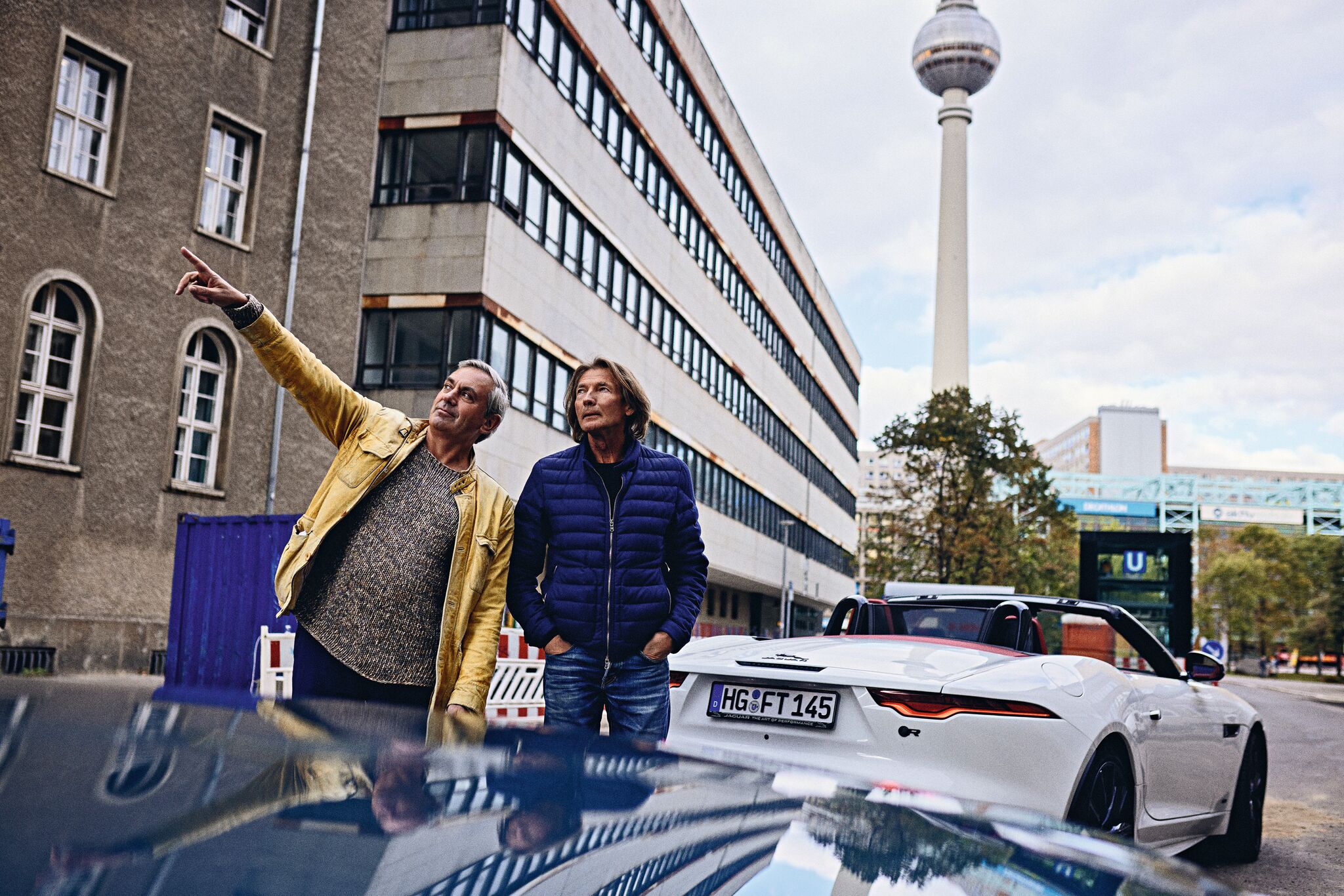
The Jaguar Convertible F-Type Final Edition, white on the outside and red on the inside, was clearly built for people who have already found happiness. Sitting in this car, I was constantly approached by women and men. The men wanted to know how much the car cost – “I’ll buy it from you!” they shouted – while the women called out “Marry me!”, though they were certainly only interested in the car, not the driver.
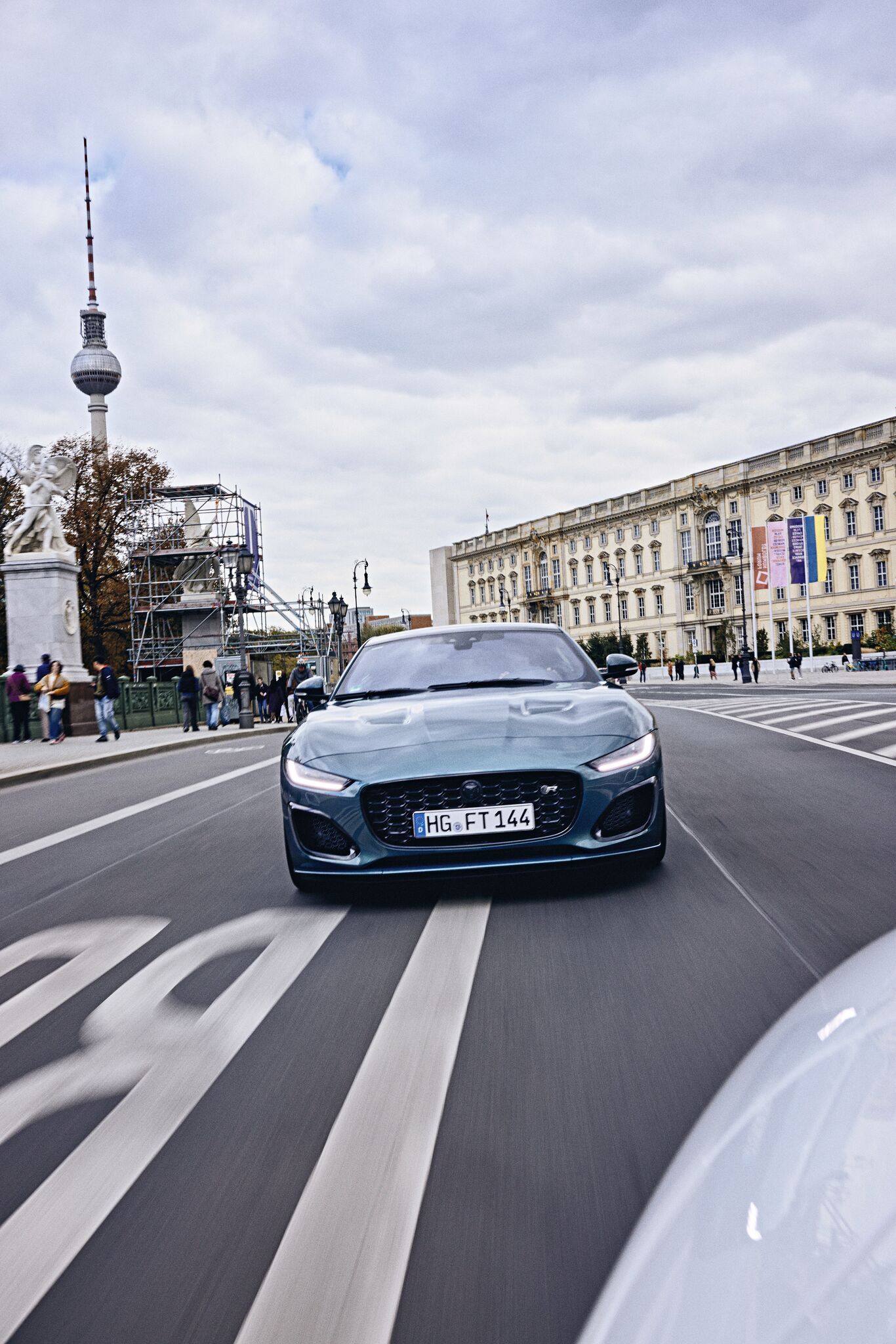
Others wanted to know what exactly we were up to with two sports cars like this in the middle of the city. “We’re here doing research on the subject ‘happy on the road’,” I answered truthfully. “That’s going to be the title of the new issue of the world’s best car magazine.” “Happy on the Road” is actually the title of a song by Chris Rea, the English singer with the pleasantly smoky voice, a man who has written many songs about driving towards the open horizon, about the happiness of being on the road, about being stuck in traffic and stepping on the gas. Rea released “Happy on the Road” in 2017, and the song quickly climbed up the charts. The lyrics are simple and straightforward:

Well I’m rolling down the highway
Smile upon my face
All the things that hurt me
Disappear without a trace
Only me on the inside
And the big wide open sky
I’m always happy at the wheel
I see it all go drifting by
I’m happy, I’m happy on the road

Chris Rea recognized that the journey is its own reward, and the tourists admiring our Jaguar were on a similar journey of their own, just strolling around, leisurely enjoying themselves in search of their own personal happiness. Did they know what exactly they were looking for? I think many of them didn’t even know where they were. Experience has shown that clueless travel can make the traveler happy. A shining example of the clueless traveler in recent history is Erwin Kreuz, who was celebrated as the epitome of the naive tourist on the front pages of newspapers around the world. It was the late seventies, the same year that Chris Rea left his band Beautiful Lovers to pursue a solo career, and for a moment Erwin Kreuz was more famous than Chris Rea.
The man from Bavaria took his first trip abroad in 1977, intending to go to San Francisco and see the Golden Gate Bridge. He fell asleep on the plane and accidentally got off in Bangor, Maine, where his plane had landed to refuel. The passengers were allowed to leave the plane to buy duty-free goods and pass through customs. The crew also had to be replaced during the stopover, and a stewardess told Erwin to “have fun in San Francisco” before leaving. Half asleep, Erwin misinterpreted her words. He thought they had already arrived in the city of his dreams. A taxi took him to a hotel in town. Not speaking a word of English, the unsuspecting Erwin spent four happy days in his own, very personal San Francisco, six thousand miles away from the real deal. He spent those four days looking for the Golden Gate Bridge and was amazed that he couldn’t find such an obvious landmark. He mistook two Chinese restaurants next to his hotel for San Francisco’s Chinatown and gave them a wide berth for safety reasons. Instead, he went to McDonald’s and developed an intimate relationship with the hamburgers there. On his fifth day in Bangor, Erwin chanced upon some German-speaking people and they clued him in. The story was picked up by the American and later the German press, and the residents of Bangor, Maine, were deeply touched that their city could be mistaken for San Francisco. They declared Erwin a guest of honor and invited him back. He was welcomed by the mayor and was allowed to eat hamburgers for free in all of the McDonald’s restaurants in the state of Maine.
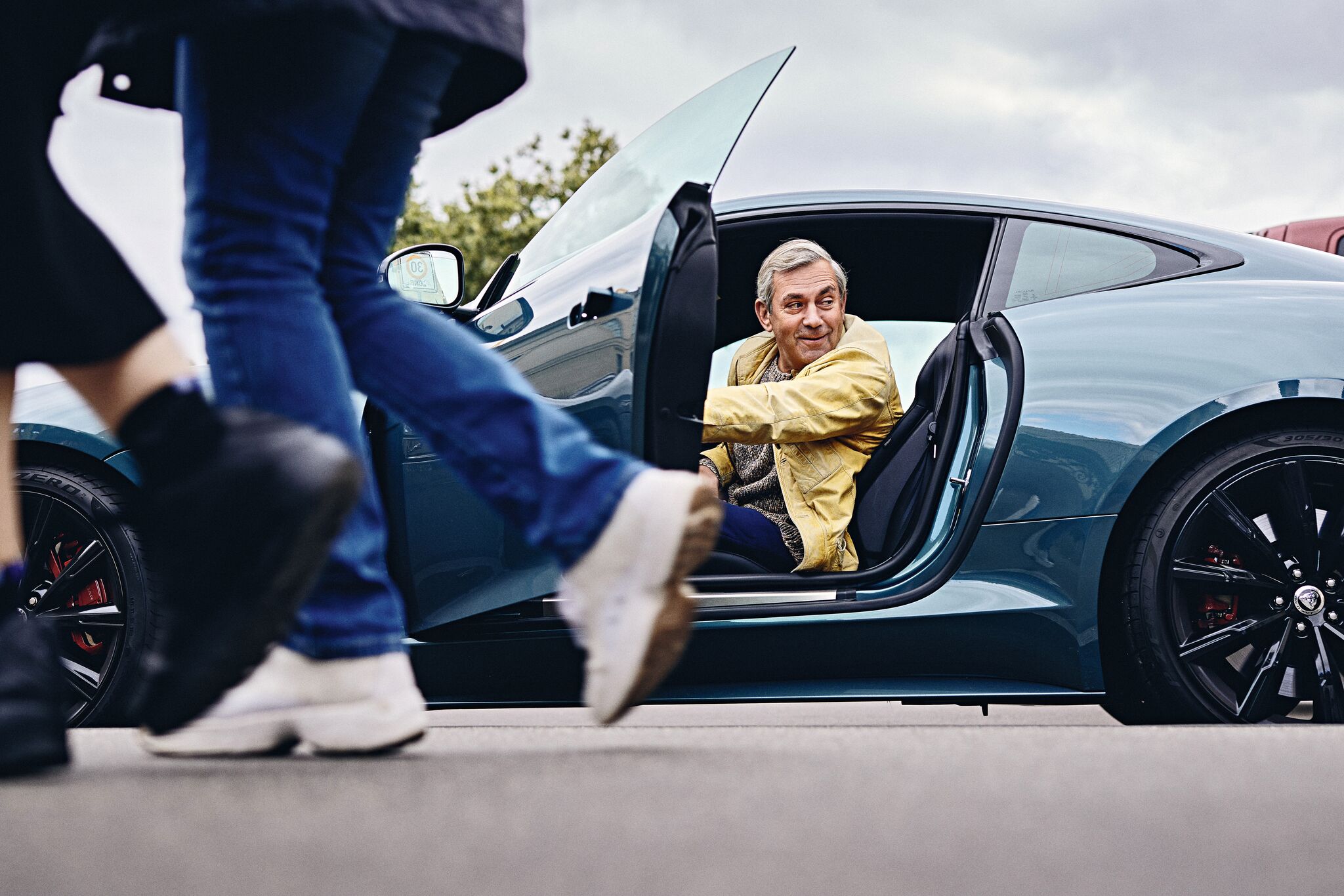
Randomly getting off a plane somewhere and being happy without knowing where you actually are? It’s possible. A lot in life is a matter of perception, the rest is a matter of chance. The ancient Greeks knew this much better than we do, they thought that the gods threw dice in the sky and depending on how the numbers fell, it rained or it was warm and dry. Today we tend to search for laws everywhere, we believe in a sophisticated global plan. There needs to be a reasonable explanation for everything in life, for war and peace, for love and hate, for wealth and poverty. Everything happens according to a certain logic, our triumphs and misfortunes are never the result of chance, of the gods, but are part of an equation. If only it were that simple. Because if that truly were the case, then our most clever thinkers could certainly come up with a clever formula to guarantee eternal peace on earth and prosperity for all. But in the meantime our scientists have come to the same conclusion as the ancient Greeks. Most things in our lives operate according to the principle of chance, including wars, which from a rational point of view should not happen at all, and certainly not several times in a row. The event generator, like the dice, has no memory, it doesn’t know what it rolled a second ago.
Most of us have learned to at least be mentally prepared for all the drama and tragedy in the world. The news rarely brings us heart-warming stories; it generally does not reflect the light of joy. How can we be happy in a world full of poverty, suffering and hardship, in which we constantly train ourselves to be prepared for every possible misfortune? We’re not prepared for happiness, should it come our way, and we probably wouldn’t even recognize it if it did. Happiness would just shake its head and pass us by unnoticed. Is there a trick to recognizing happiness?
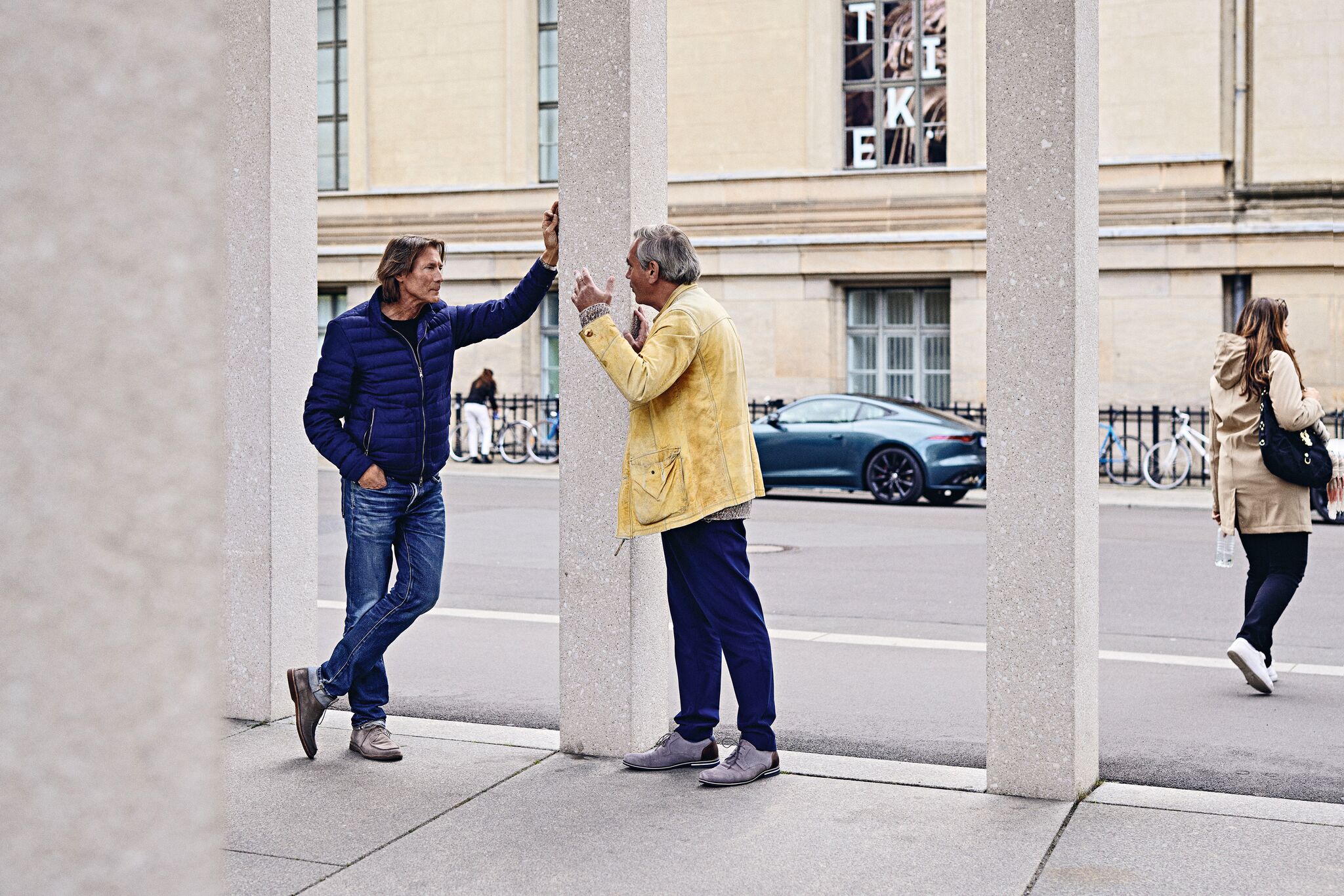
Some yoga exercise, perhaps, or meditation? What can we do, how do you train the ability to be happy? I’ve gotten into the habit of using traffic jams for this purpose. When I’m stuck in a traffic jam, I don’t listen to music or the news, I don’t get annoyed at the obstacles in front of me, I practice being happy, to enjoy that I’ve been taken out of my daily routine for a bit. And sometimes that brief period of time turns into a longer moment. A beautiful and enjoyable moment. You just have to learn how to savor it.
Nothing is more restrictive in people’s behavior, nothing robs us of so much energy and nothing poisons our self-confidence more than the constant willingness to quickly and smoothly adapt to the order of business, to complete the given routine with maximum efficiency and then . . . Yes, exactly, what then?

We waste our time with this constant anticipation of happiness. This expectation always places happiness somewhere far ahead, someplace we haven’t arrived at yet. This fills us with worry. Why isn’t happiness here yet? Are we heading in the right direction? Perhaps we took a wrong turn and we’ve strayed from the real road to happiness? Or is our happiness simply having a bad day or is it in a bad mood or is it whimsical, playing hide and seek with us? But what if it’s already here and we just don’t know it?
It’s incredibly difficult to recognize that happiness has always been here. That it never left us. It’s here with us in the same room, in the same car, with me at the wheel, in the passenger seat, along for the ride. Relaxed and calm and always in the right place. You don’t have to prepare for happiness, the preparations only confuse us, you don’t have to look for happiness out there in the big wide world, you have to look for it within yourself, what you’re looking for is right in front of your nose. We tend to overrate things we don’t have and experiences we haven’t had. We overestimate joy and underestimate suffering. When we think about drinking another glass of wine, we overestimate the pleasure it can give us and ignore the headache the next day, as Plato said. I agree. Joy and suffering, like happiness and unhappiness, are inseparable, and not just when drinking alcohol.

Most pleasures depend on suffering; one cannot arise without the other. The hungrier you are, the more pleasure you get from eating. Even a caviar sandwich tastes like bland semolina porridge when you’re just moderately hungry. After recovering from a long illness, people feel that their restored health is a great blessing, something they never truly appreciated before they fell ill. If people stopped being constantly afraid of doing something wrong, if they let go, if they didn’t see life as a permanent obstacle course and didn’t immediately panic at every missed opportunity, they would have a good chance of finding happiness in each tranquil moment. Each to their own, of course. Personally, I take cats as my role model.
Cats can be happy without striving for happiness. They don’t even show it. They’re happy the way most people have Covid – asymptomatic. Only sometimes they purr quietly or want to be stroked on the tummy. For me, cats have always been the best teachers and educators. They have answers to the most important questions about life, but they don’t want to impose them on anyone. This is illustrated by an example from my childhood:

When I was little, I didn’t want to eat my grandmother’s meatballs. I had the terrible suspicion that living creatures had to die for those meatballs. I didn’t think that was fair and I told my grandmother so to her face. My grandmother laughed at so much childish naivety and explained to me that nobody had to die for those meatballs. Animals simply shed their superfluous flesh over time, she explained. I didn’t believe her. Because if that was true, there was still the question of why people didn’t discard anything like that. So I decided to test her theory. To do this, I chose to observe my cat, Sophia. For one whole week, I followed Sophia around the apartment and out into the yard to see if it shed any superfluous pieces of meat. During this time, I witnessed her eating a sparrow, a mouse and a fish it had taken from the pond without waiting for them to give up anything voluntarily. Sophia herself hadn’t shed a single bit of anything in all that time. She was at peace with herself and the world with her murderous matter-of-factness. Since then, I’ve trusted cats more than grandmothers. It’s good not to know what’s coming. You have to do it like cats: they don’t know the future, but their lives are never boring.
Text Wladimir Kaminier
Photos David Braun
ramp #63 Happy on the Road
